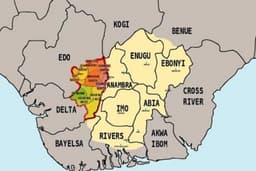
Nigerians who have obtained Canadian citizenship or become permanent residents and are seeking to bring their parents or grandparents to Canada under the Super Visa programme must now have a minimum income of $30,526, up from $29,380 in 2024.
This change took effect in late July and applies to single-income households.
A two-person household must now earn at least $38,002, compared to last year’s $36,576. For a family of three persons the requirement rises to $46,720, while four-person households must meet a minimum of $56,724.
Larger families face even higher thresholds. For instance, five members require $64,336, six members $72,560, and seven members $80,784. For each additional person beyond seven, the required income increases by $8,224, up from $7,916 in 2024. Spouses or common-law partners may co-sign the application to combine household income and meet the required amount.
About the Super Visa option
Another visa category that is an option for parents and grandparents, is the Super Visa which allows parents and grandparents of eligible Canadian citizens or permanent residents to enter the country as long-term visitors. The visa is valid for up to 10 years, with each stay permitted for up to five consecutive years. Unlike permanent residents, Super Visa holders are not authorised to work or study and typically do not qualify for provincial or territorial health coverage.
How to determine the family size
To calculate the required income, hosts must count all relevant individuals in their household. This includes the sponsor, their spouse or common-law partner (even if separated), and any dependent children of both the sponsor and their partner. The Super Visa applicants themselves must also be included, along with any other applicants applying at the same time.
Additionally, previously approved Super Visa holders who are still covered by a valid invitation must be counted, as well as individuals previously sponsored under an active undertaking. These definitions are set by Immigration, Refugees and Citizenship Canada (IRCC).
Scenarios to calculate family size
Consider the case of a divorced individual with two dependent children who wishes to invite both parents to Canada under the Super Visa programme. Although custody of the children is shared with a former partner, they must still be included in the household count. When factoring in the sponsor, the two children, and the two invited parents, the total family size amounts to five. Accordingly, the minimum income required to qualify is $64,336.
In another scenario, a married applicant with one child intends to invite a grandparent. The applicant’s spouse is already hosting both of their own parents on active Super Visas. In this case, the household count must include the sponsor, the invited grandparent, the spouse, the child, and the spouse’s two parents resulting in a total of six family members. The required income threshold for this application is $72,560.
A third example involves an individual who is married with one child and has previously co-signed a sponsorship for their former spouse’s parents. To invite their own parents, the sponsor must include themselves, their two parents, their current spouse, their child, and the two previously sponsored individuals. Despite the change in marital status, the earlier sponsorship remains valid and must be considered. This brings the total household size to seven, requiring a minimum income of $80,784.
Acceptable proof of income
To demonstrate financial eligibility, applicants may submit a range of documents. These include the most recent Notice of Assessment issued by the Canada Revenue Agency (CRA), T4 or T1 tax forms, and pay stubs covering the past 12 months. Employment Insurance benefit statements and letters from accountants confirming annual income are also accepted, particularly for self-employed individuals.
Other acceptable forms of evidence include pension statements, letters from employers detailing job title, responsibilities, and salary, and bank statements showing financial stability.
Super Visa vs. Parents and Grandparents Programme (PGP)
The Super Visa and the Parents and Grandparents Programme (PGP) differs significantly in both immigration outcomes and availability.
Successful PGP applicants are granted permanent residence, allowing them to live in Canada indefinitely, work or study without permits, and qualify for provincial or territorial health insurance.
In contrast, Super Visa holders are granted visitor status for up to 10 years, with each stay limited to five years. They are not permitted to work or study and typically do not qualify for public health coverage.
Availability also varies. The PGP operates on a lottery system that opens once a year and is currently limited to those who submitted interest to sponsor forms in 2020. The Super Visa, however, is available year-round, allowing eligible hosts and their relatives to apply at any time. (BusinessDay)


























NEWS EXPRESS is Nigeria’s leading online newspaper. Published by Africa’s international award-winning journalist, Mr. Isaac Umunna, NEWS EXPRESS is Nigeria’s first truly professional online daily newspaper. It is published from Lagos, Nigeria’s economic and media hub, and has a provision for occasional special print editions. Thanks to our vast network of sources and dedicated team of professional journalists and contributors spread across Nigeria and overseas, NEWS EXPRESS has become synonymous with newsbreaks and exclusive stories from around the world.